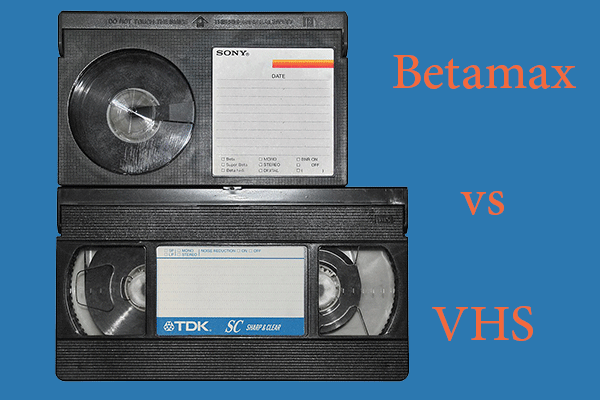VHS stands for Video Home System, a standard for consumer-level analog video recording and playback. It was introduced in the late 1970s and became a popular format for recording and viewing home videos. In this article written by MiniTool official web page, we will explore the meaning and history of VHS, as well as its impact on home entertainment.
What Does VHS Stand For?
VHS stands for Video Home System. It was developed by the Japanese electronics company JVC (Victor Company of Japan) in the mid-1970s as a consumer-level alternative to professional video recording formats. VHS was designed to be affordable, easy to use, and compatible with standard television sets.
When Did VHS Come Out?
The first VHS recorder was released in Japan in 1976, and it was soon followed by the first VHS player. However, VHS did not become popular in the United States until the early 1980s, when VHS tapes began to be sold and rented in video stores. The format was in direct competition with Betamax, a similar but incompatible video recording format developed by Sony.
When Was VHS Invented?
VHS was invented by JVC in 1976. The company had previously developed a professional video recording format called U-matic, but VHS was specifically designed for home use. JVC also developed the VHS-C format, which was a smaller, more portable version of VHS, and the S-VHS format, which offered higher resolution and improved color accuracy.
VHS Resolution
VHS resolution is often cited as one of the format’s drawbacks. VHS recordings have a maximum resolution of 240 lines, which is much lower than the resolution of modern digital formats. However, it is important to remember that VHS was designed for analog playback on standard television sets, which typically had a lower resolution than modern digital displays. VHS was also designed to be a relatively low-cost format, and the limited resolution helped to keep the cost of equipment and tapes down.
Conclusion
What does VHS stand for? VHS stands for Video Home System, a popular analog video recording and playback format introduced in the late 1970s. It was invented by JVC as a consumer-level alternative to professional video recording formats, and it became a popular format for recording and viewing home videos. Although VHS had a relatively low resolution compared to modern digital formats, it was designed to be affordable, easy to use, and compatible with standard television sets. VHS had a significant impact on home entertainment, and it remains a cultural touchstone for many people who grew up in the 1980s and 1990s.
Related Articles
- The Betamax Movie Legacy: Nostalgia, Collectibles, and Lasting Memories
- The Betamax VCR and Camcorder: Pioneering Home Video Technology
- Converting Betamax to Digital: Preserving Your Memories for the Digital Age
- Before Betamax and VHS: Exploring the Predecessors of Home Video Recording
- The Vintage Charm of VCR Tapes: Are They Worth Anything?




User Comments :